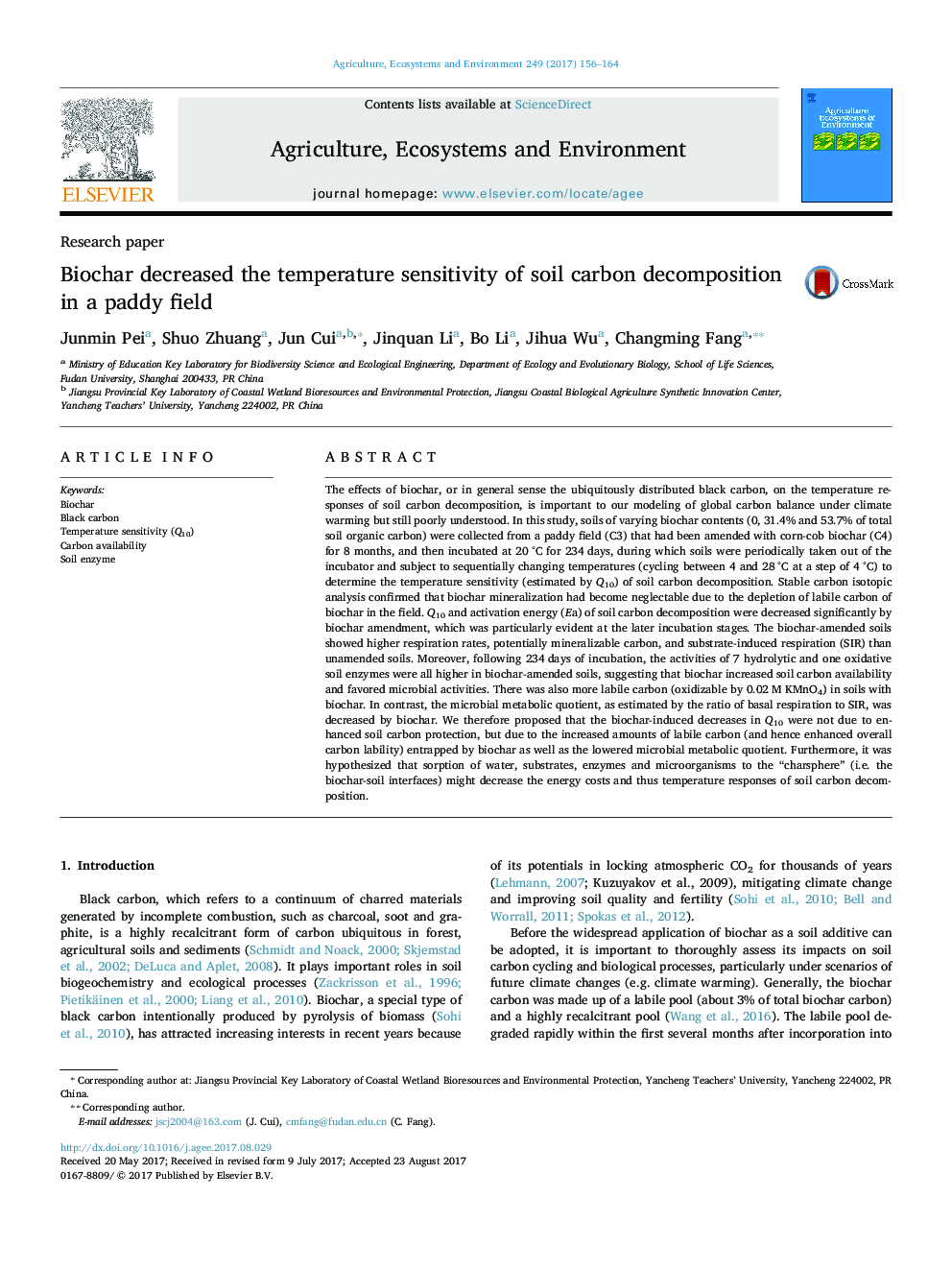| Article ID | Journal | Published Year | Pages | File Type |
|---|---|---|---|---|
| 5538200 | Agriculture, Ecosystems & Environment | 2017 | 9 Pages |
Abstract
The effects of biochar, or in general sense the ubiquitously distributed black carbon, on the temperature responses of soil carbon decomposition, is important to our modeling of global carbon balance under climate warming but still poorly understood. In this study, soils of varying biochar contents (0, 31.4% and 53.7% of total soil organic carbon) were collected from a paddy field (C3) that had been amended with corn-cob biochar (C4) for 8 months, and then incubated at 20 °C for 234 days, during which soils were periodically taken out of the incubator and subject to sequentially changing temperatures (cycling between 4 and 28 °C at a step of 4 °C) to determine the temperature sensitivity (estimated by Q10) of soil carbon decomposition. Stable carbon isotopic analysis confirmed that biochar mineralization had become neglectable due to the depletion of labile carbon of biochar in the field. Q10 and activation energy (Ea) of soil carbon decomposition were decreased significantly by biochar amendment, which was particularly evident at the later incubation stages. The biochar-amended soils showed higher respiration rates, potentially mineralizable carbon, and substrate-induced respiration (SIR) than unamended soils. Moreover, following 234 days of incubation, the activities of 7 hydrolytic and one oxidative soil enzymes were all higher in biochar-amended soils, suggesting that biochar increased soil carbon availability and favored microbial activities. There was also more labile carbon (oxidizable by 0.02 M KMnO4) in soils with biochar. In contrast, the microbial metabolic quotient, as estimated by the ratio of basal respiration to SIR, was decreased by biochar. We therefore proposed that the biochar-induced decreases in Q10 were not due to enhanced soil carbon protection, but due to the increased amounts of labile carbon (and hence enhanced overall carbon lability) entrapped by biochar as well as the lowered microbial metabolic quotient. Furthermore, it was hypothesized that sorption of water, substrates, enzymes and microorganisms to the “charsphere” (i.e. the biochar-soil interfaces) might decrease the energy costs and thus temperature responses of soil carbon decomposition.
Related Topics
Life Sciences
Agricultural and Biological Sciences
Agronomy and Crop Science
Authors
Junmin Pei, Shuo Zhuang, Jun Cui, Jinquan Li, Bo Li, Jihua Wu, Changming Fang,
